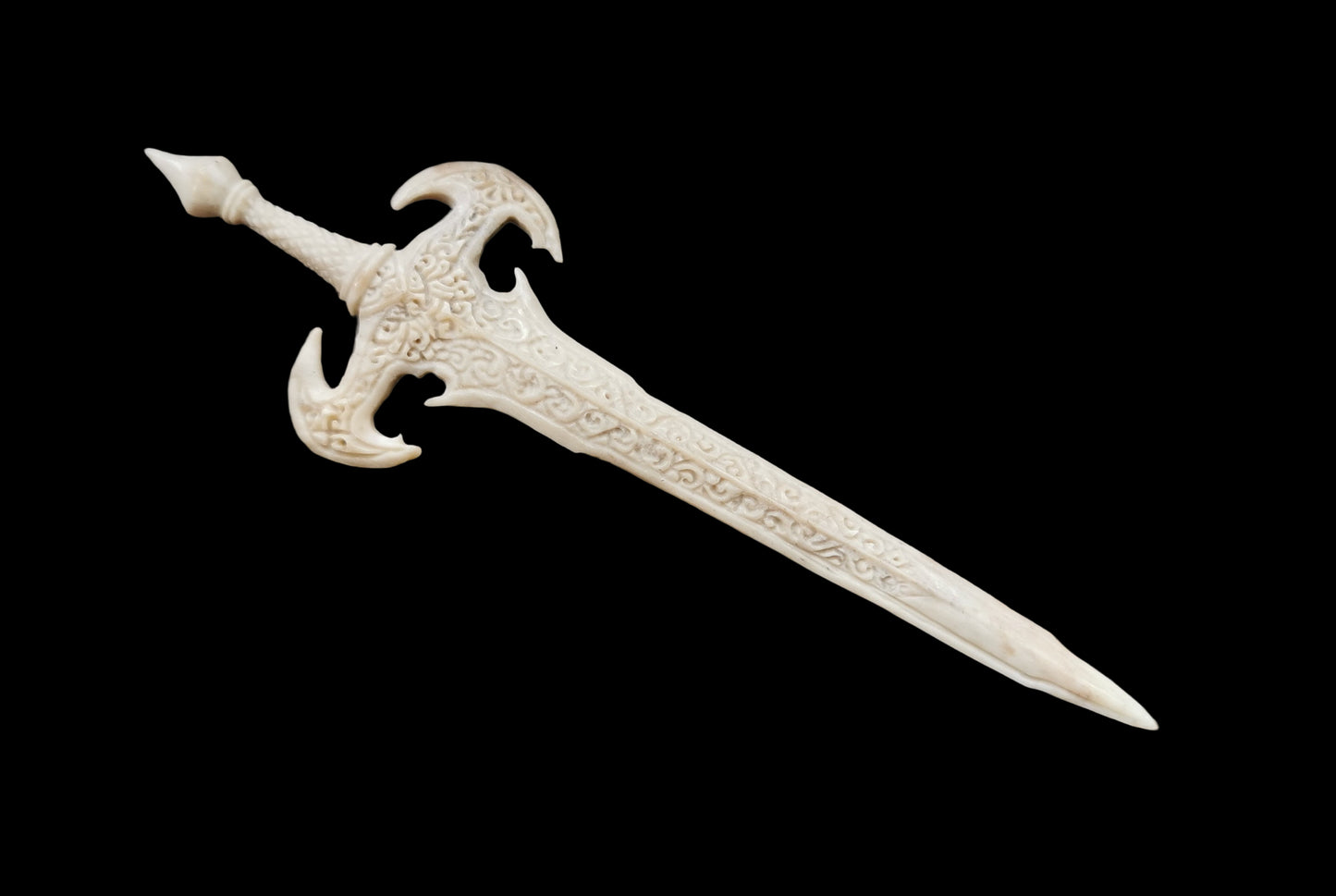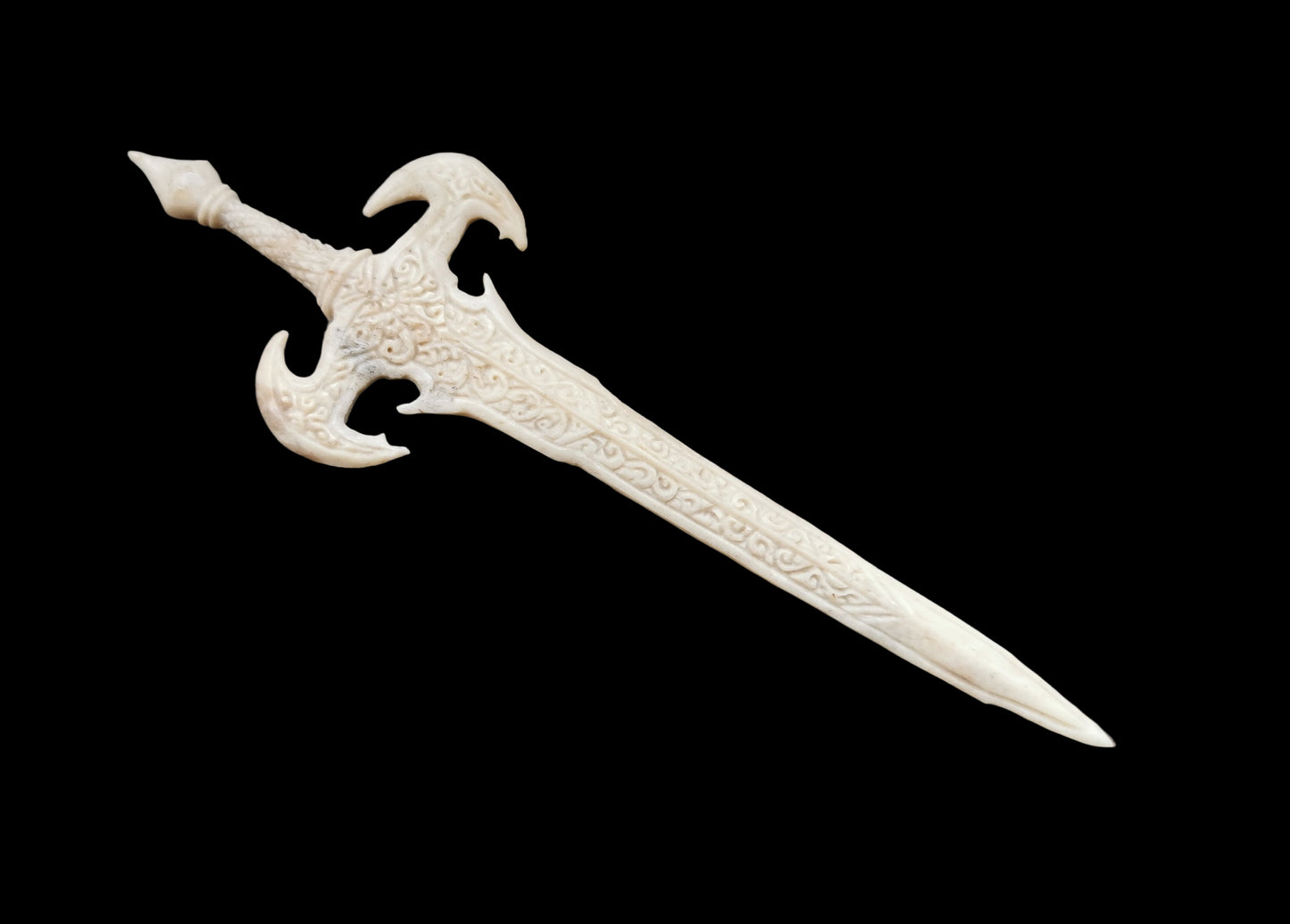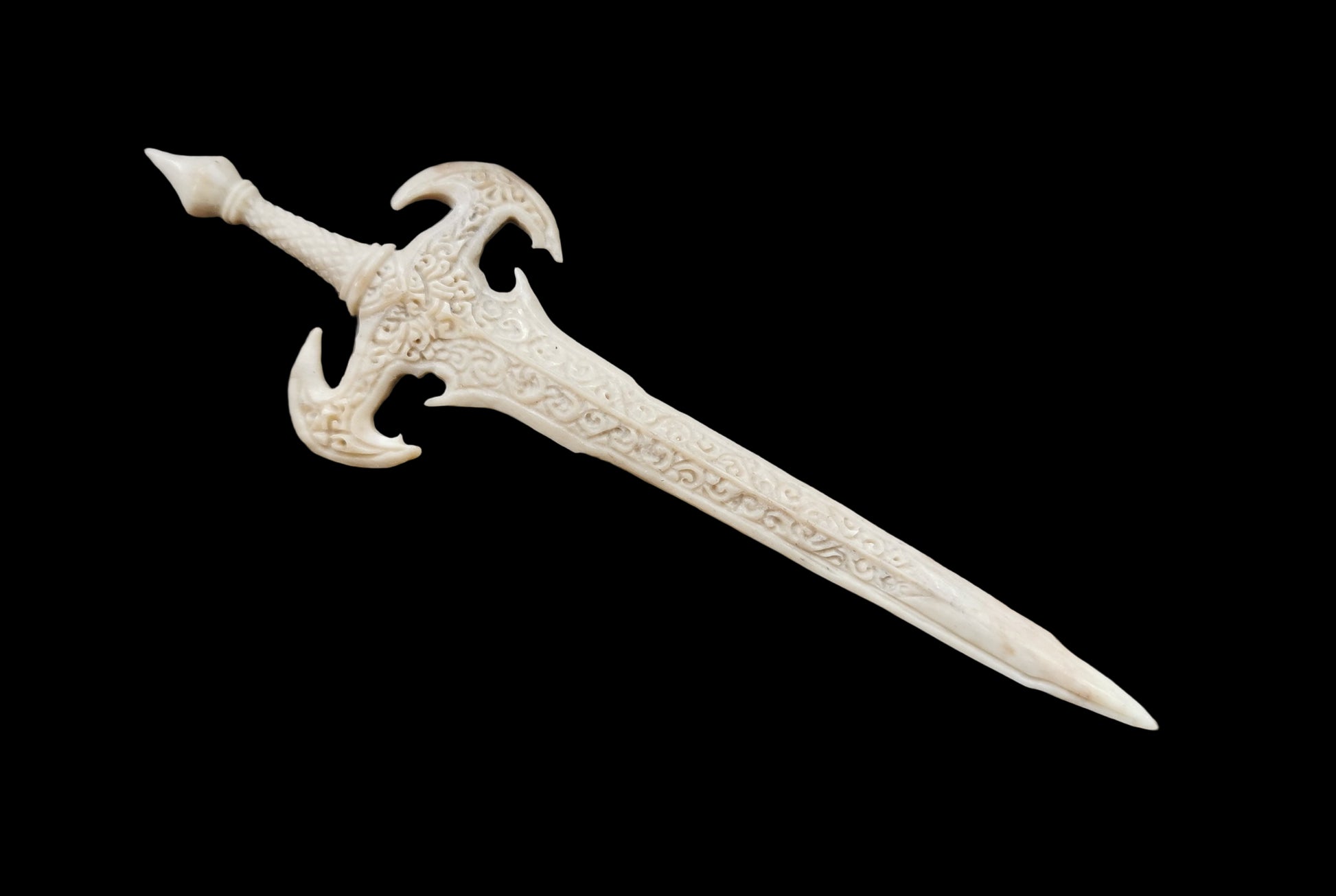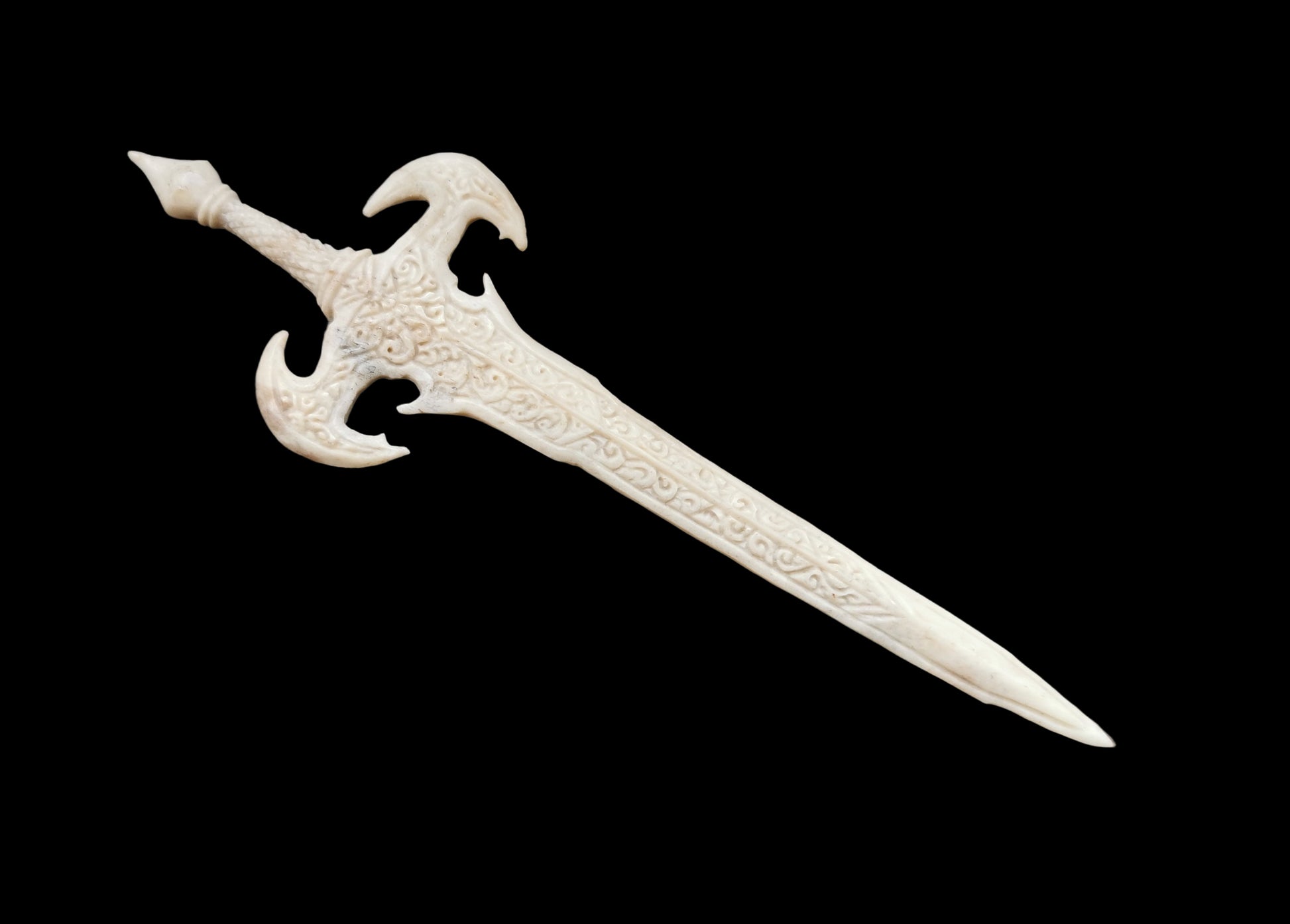Portal Glastonbury
Ref.CR0156
Ref.CR0156
Couldn't load pickup availability
Ref.CR0156 - Carved sword in mammoth bone.
Swords hold profound symbolic significance across cultures, mythologies, and religions, often representing power, justice, honor, and duality—such as life and death or good versus evil. Their sharp blade and hilt evoke themes of cutting through illusions, protection, and transformation, making them potent emblems in folklore, art, and philosophy. Expanded interpretations draw from their historical role as weapons and tools, symbolizing human ambition, moral integrity, and the balance between creation and destruction.
### Power, Authority, and Leadership
Swords frequently symbolize authority and leadership, as they were historically wielded by rulers, warriors, and knights to enforce order or defend realms. In Western cultures, they represent sovereign power, often depicted in ceremonies like knighting, where the sword taps shoulders to confer status. Philosophically, this evokes the responsibility of power—sharp enough to protect but dangerous if misused—encouraging ethical leadership and self-discipline. In Viking traditions, swords were status symbols of wealth and prowess, buried with owners to signify eternal guardianship. Psychologically, owning or visualizing a sword can inspire confidence and assertiveness, helping individuals claim personal authority in life's battles.
### Justice, Honor, and Moral Integrity
As instruments of judgment, swords symbolize justice and honor, cutting through falsehoods to reveal truth. In many myths, they enforce moral codes, such as the samurai's katana embodying the bushido code of loyalty and discipline in Japanese culture. This duality—capable of both protection and harm—mirrors ethical dilemmas, promoting integrity and courage in decision-making. In Celtic lore, the Gaélica sword represented a warrior's identity and valor, tied to oaths of honor. Philosophically, it inspires standing firm in principles, fostering resilience against corruption or adversity.
### Duality of Life, Death, and Transformation
Swords encapsulate life's dual nature: creators of order through defense, yet bringers of death in conflict. In Eastern iconography, they appear in representations of deities, symbolizing the severing of ignorance for enlightenment, as in Hinduism or Buddhism where swords cut emotional ties or illusions. This transformative aspect encourages personal growth, where "forging" through trials builds character, akin to a blade tempered in fire. Psychologically, dreaming of swords may signal the need to confront fears or sever toxic ties, promoting renewal and empowerment.
### Wisdom, Knowledge, and Spiritual Insight
Beyond physical might, swords symbolize intellectual sharpness and wisdom, "cutting" to the core of knowledge. In Chinese culture, the jian sword represents the scholar-warrior ideal, blending intellect with action for prosperity and harmony. Ornaments on swords often signify luck, longevity, and wealth, tying to philosophical pursuits of balanced living. This fosters a mindset of enlightened action, where wisdom guides power, inspiring lifelong learning and insightful problem-solving.
Overall, swords invite contemplation of balanced power, ethical resilience, and transformative duality, serving as timeless metaphors for human strength and moral navigation in a complex world.
Size: 108mm/4.25in approx.




